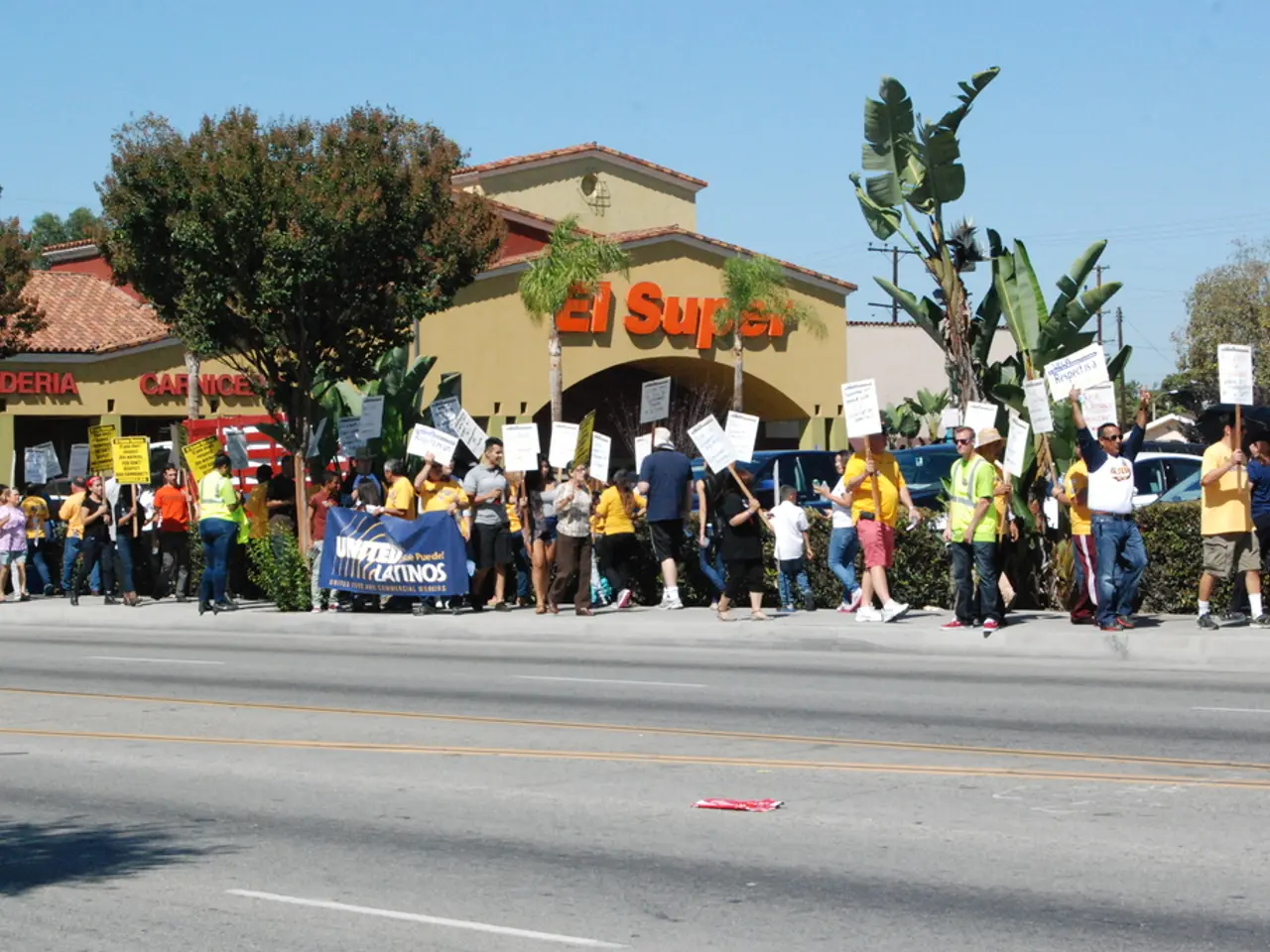Slower Internet Speeds Reported in Georgia in Regional Context
The World Bank's recent study on Georgia's internet connectivity has identified significant issues with fixed broadband, particularly low speeds and high costs. As of July 2024, 93% of fixed internet speed tests showed download speeds below 30 Mbps, with a median speed of just 20 Mbps, far behind the European Union average of 150 Mbps and lagging behind some neighboring countries like Armenia and Azerbaijan.
The study, published by the World Bank Communications Commission, is based on over 7 million speed test results from the global platform Ookla. It does not specify any target speeds for Georgia's fixed broadband infrastructure, nor does it provide information about upload speeds.
Despite the improvement in mobile connectivity, Georgia's fixed broadband performance still lags behind several regional peers. The rollout of 5G in Georgia has increased mobile internet speeds by 53% between 2021 and 2024, but this has not seemed to significantly affect Georgia's fixed broadband performance.
The market is dominated by three major providers, limiting competition, which contributes to high prices and insufficient service quality despite rising costs to consumers. Rural and remote areas especially suffer from lower connectivity, although there have been some investments to improve coverage nationally.
The key recommendations to fix these issues include strengthening market competition, implementing stronger regulatory oversight and consumer protections, expanding infrastructure investments, and considering alternative technologies for the hardest-to-reach locations.
Strengthening market competition is essential to reduce prices and improve service quality, by encouraging more providers and reducing dominance by the few major players. Implementing stronger regulatory oversight and consumer protections will ensure fair pricing and service improvements. Expanding infrastructure investments, particularly extending fiber-optic broadband beyond urban centers to rural and underserved areas, using detailed broadband mapping to target these zones effectively, is crucial. Considering alternative technologies, such as satellite internet, for the hardest-to-reach locations that may not be economically feasible to serve with fiber, could also be beneficial.
The World Bank emphasizes that addressing fixed broadband infrastructure and market issues is essential for Georgia to catch up to regional peers and global standards, ensuring more equitable and affordable digital access for all residents.
[1] World Bank Communications Commission (2024). Georgia's Internet Connectivity: Challenges and Opportunities. [2] World Bank Communications Commission (2024). Georgia's Internet Connectivity: A Market Perspective. [3] World Bank Communications Commission (2024). Georgia's Internet Connectivity: Infrastructure Investments and Future Prospects.
- The World Bank's reports, such as "Georgia's Internet Connectivity: Challenges and Opportunities," "Georgia's Internet Connectivity: A Market Perspective," and "Georgia's Internet Connectivity: Infrastructure Investments and Future Prospects," all highlight the influence of science and technology on the country's internet connectivity, emphasizing the need for growth in these areas to combat issues like low speeds, high costs, and limited competition in fixed broadband networks.
- To improve Georgia's lackluster fixed broadband performance, the World Bank recommends strategies that intertwine science, technology, and general news, such as strengthening market competition, implementing regulatory oversight, improving infrastructure, and exploring alternative technologies – all of which are critical for Georgia to advance in the digital age and align with regional and global norms in internet connectivity.




